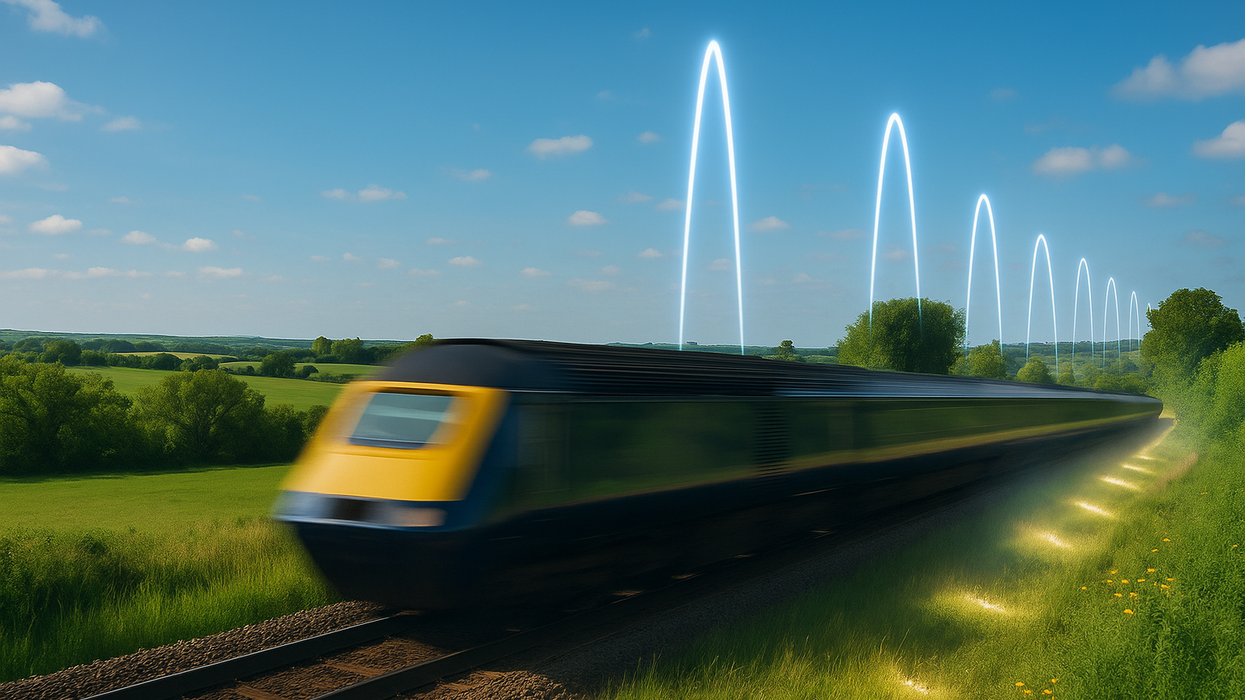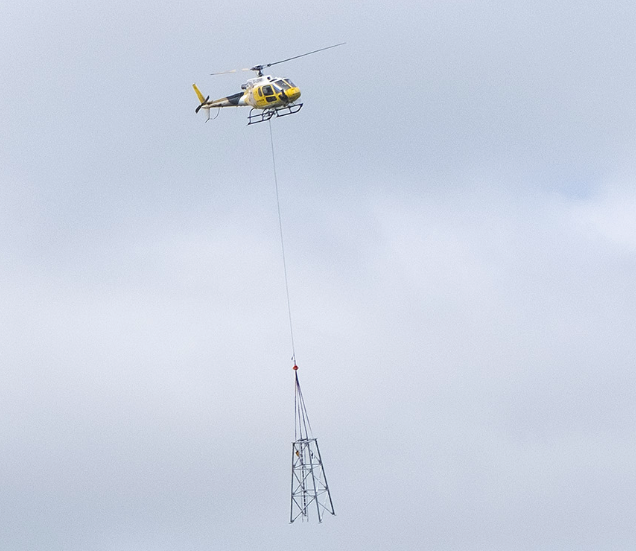Millions in UK unlock supercharged 4G and 5G signal on trains, and planned boost could actually save money

With an extra 621 miles of ultra-fast fibre cable beside the railway lines, this new public-private partnership is confident it can eliminate 4G and 5G blackspots in the UK
|SORA | GBN

All products and promotions are independently selected by our experts. To help us provide free impartial advice, we will earn an affiliate commission if you buy something. Click here to learn more
Similar to plans to bolster full-fibre roll-out in rural parts of the UK, the Government wants to quash mobile signal dead zones
- New private-public partnership aims to eliminate most signal blackspots by 2028
- It will see 621 miles of ultra-fast fibre optic cable laid alongside train tracks in UK
- 4G and 5G infrastructure will be supercharged at 12 railway stations
- Lost signal is estimated to cost £300 million in lost productivity
Don't Miss
Most Read
Millions of Britons will unlock an upgraded 4G and 5G signal as they travel on the UK's major train routes, the Department for Transport (DfT) has announced.
It's all thanks to a new plan to eliminate almost all mobile signal blackspots across the country. The Government-owned Network Rail has signed a new agreement with telecom companies Neos Networks and Freshwave to quash dropped calls and weak internet connections when travelling by train.
Unlock 40GB of 5G, unlimited calls, and free EU roaming with SMARTY Mobile SIM

With this superb SIM-only deal in your iPhone or Android smartphone, you'll benefit from 40GB of 5G mobile data every month — that's more than enough to stream Netflix boxsets, podcasts, Spotify, YouTube videos and more away from a Wi-Fi connection. This Three UK-owned firm also bundles unlimited calls and texts, which can be used in 27 European countries at no extra cost
SMARTY SIM
$10
Dubbed Project Reach, the first step will see Neos Networks install 1,000km (621 miles) of ultra-fast fibre optic cable along parts of the East Coast Main Line, West Coast Main Line, Great Western Main Line and Chiltern Main Line. There is an ambition to expand the cabling beyond 5,000km (3,107 miles) in the “near future”, the DfT confirmed.
Meanwhile, Freshwave will tackle blackspots in 57 tunnels covering nearly 50km (31 miles), including the Chipping Sodbury tunnel near Bristol. As part of the deal, mobile network operators will also invest in new 4G and 5G infrastructure at these 12 railway stations: Birmingham New Street, Bristol Temple Meads, Edinburgh Waverley, Euston, Glasgow Central, King’s Cross, Leeds, Liverpool Lime Street, Liverpool Street, Manchester Piccadilly, Paddington and Waterloo.
The DfT said the agreement “brings together public and private sector investment and infrastructure”, and hopes to save taxpayers “around £300 million”.
Transport Secretary Heidi Alexander said: “This is a game-changer for passengers up and down the country, and will revolutionise journeys from Paddington to Penzance and Edinburgh to Euston.
"By boosting connectivity and tackling signal blackspots, we are also ensuring a more reliable and efficient service. This means better journeys for passengers while supporting our broader plan for change goals of economic growth and digital innovation.”
LATEST DEVELOPMENTS

It builds on the efforts of the Shared Rural Network programme, which enables mobile operators to share the costs and coverage from masts in tough-to-reach places. The image above shows a helicopter being deployed by Virgin Media O2 to build a mast as part of the ongoing efforts to extend 4G signal across the UK
| SHARED RURAL NETWORK PRESS OFFICEJacqueline Starr, executive chair and chief executive officer of Rail Delivery Group, said: “We know how much customers value good mobile connections when they travel and we’re delighted that a digitally connected railway will soon become a reality.
"Travelling by rail drives economic growth by connecting businesses and communities, improving productivity, and supporting the transition to net zero. This vital upgrade to telecoms across the network will give everyone the opportunity to stay connected, wherever they’re headed.”
The installation of infrastructure under Project Reach is expected to begin next year and be completed by 2028.
Additional Reporting By Neil Lancefield, PA Transport Correspondent
More From GB News










